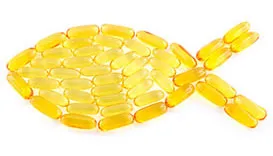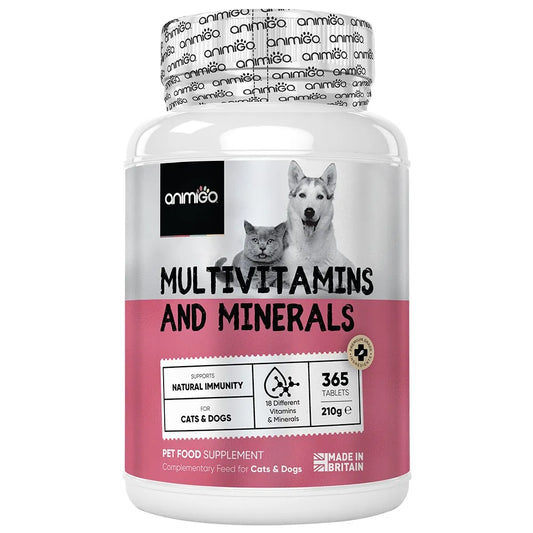Are Fish Oils Good For Dogs?
When we talk about maximising the standard of living for our dogs, we are usually looking to organic diets and exercise routines, but could be looking to the ocean also be worth doing when wanting to optimise our dog’s wellbeing? So what about fish oil for dogs? You hear people talking about things like salmon or cod liver oil for dogs, but why are they so good for their wellbeing? First, it is necessary to make sense of what fish oils are and how they work, before understanding why we should be giving them to our dogs.
What are fish oils for dogs?

Fish oils, as the name suggests, are natural oils that take their origin from fish. They are known to be mainly consisting of monounsaturated fat, which is liquid at room temperature. A common form of fish oil would be cod liver and salmon oil for dogs, but fats are bad right? Actually no. Unsaturated fats are known to be far more healthy than saturated fats. Also, fats, in general, have an important role to play in the body, as they are used to create hormones which are essential for the day to day function of the body and brain, as well as for the reproductive system, which is promising for supplementation in dogs.
The unsaturated fat that makes up the majority of fish oil is called Omega 3. This fatty acid is famously used as a supplement in human beings for its promising use in helping support brain function, but did you known omega 3 for dogs can be just as promising? There are certain compounds that make up Omega 3 that help give it its promising advantages. These include:
EPA
Eicosapentaenoic acid, or EPA for short, is one of two active chemical agents that can be found in Omega 3, the most significant compound in fish oil for dogs. This biological natural fatty acid is part of why Omega 3 for dogs is so attractive to supplement with, and why omega dog food is often encouraged. Namely because consuming it in large enough quantities can help the body with cholesterol. EPA has also been linked to helping support normal cardiac function which is important for your dog’s heart health.
DHA
DHA is the second of the two most significant active fatty acids that you can find in Omega 3 for dogs. This one essentially takes a supportive role in providing the potential benefits of fish oil for your dog, but it has also been linked to helping support psychological function. This can explain why Omega 3 is such a widely popular supplement in both humans and pets alike.
Can I Give My Dog Cod Liver Oil?
Although fish oil for dogs, salmon oil for dogs, krill oil for dogs etc. all seem seem to be great natural oceanic components to add to your dog’s diet, there are always considerations that need to be made when deciding whether or not to take a supplement. The following are ones that relate specifically to fish oil and the other aqueous oils such as salmon oil for dogs:
Mercury
Our dog’s health aside, a concern that has been plaguing the world in recent years, has been the increasing pollution of the world’s oceans. This has led to all kinds of problems such as damaged coral reefs, depleted fish stocks and contaminated water. Among all of this, fish have been taking in a lot of unwanted chemicals that have been building up as a result of pollution, the most significant being mercury.

Mercury is a very toxic chemical that you should by no means allow your dog to consume and it can now be found in very small quantities in some fish. That is why it is important that you ensure that the fish oil that you get is well sourced, or even organic, as this will limit the likelihood of it containing mercury. Needless to say, this is an important factor to consider when deciding whether to enhance your pooch’s vitality with fish oil for dogs, and is one of the reasons why krill oil for dogs has become so popular thanks to it being lower down on the food chain and less likely to contain harmful Mercury.
Concentration
You should also be sure to consider how concentrated the fish oil that you get is. The ingredients in fish oil such as Omega 3 as well as in omega dog food (EPA and DHA) are effective, but only if they are being provided in the right amount. Remember to always check the label to ensure that you are getting a high potency oil as this will provide the best benefits for your dog’s health and wellness.
Should I Give Fish Oil To My Dog?
When considering any kind of fish oil for dogs, you should remember that they overall provide a great way to deliver ingredients into your dog’s diet that they simply wouldn't be able to receive were they not supplemented with them. However, as indicated above, it is necessary to ensure that your dog is receiving high-quality fish oil or omega dog food. The chosen fish oil for dogs should also be of a suitable potency, in order for the effects that have made it so popular with humans, to be experienced by your four-legged friend. By making this all-important checks, you will also be ensuring that your pooch doesn't end up consuming any harmful chemicals either.

Furthermore, as much as fish oils for dogs present themselves as an ideal way to help support vitality in your dog, they are not the be all and end all of providing optimal wellness for your doggie companion. A balanced diet and exercise is a prerequisite of taking any supplement, as it will lay a stable foundation from which you can begin to look at adding to your dog’s diet in a positive way to improve their vitality. Equally, you should also lead by giving your dog an active lifestyle as this helps ensure their body is functioning well, and also helps ensure their happiness. Fish oil for dogs is wondrous as a supplement to help complement these two pillars of a healthy lifestyle and to help support your dog’s vitality to a higher level.
Fish Oils for Skin and Coat
Krill oil for dogs, salmon oil for dogs and cod liver oil for dogs all share one common theme that you can gather from their names, they are all examples of natural oils. Oils on a cell to cell level are hydrophobic. This means that they chemically don’t like water and tend to not mix with it well and is why you will find that oil often forms on the top of water solutions. This makes it very promising for the maintenance of skin and coats in dogs. Fish oils for dogs can help to not only keep moisture from saturating your dog’s hair, but they can also help to lock in the natural agents within, keeping it high in vitality and protected. The same goes for your dog’s skin. Oils essentially work to keep nutrients from being washed out of skin and hair cells.
The Right Fish Oil for Dogs
Like with all supplements, it is important to look at providing your dog with fish oil for dogs that take their origin from nature. That is why it can be often capitulated that omega foods for dogs such as salmon oil, krill oil and cod liver oil for dogs are the most preferentially to providing the best benefits. All of these are examples of naturally sourced omega dog food. Natural sourcing is the best way to ensure that your dog is getting a supplement that is providing the best benefits with minimal risk of unwanted additives and chemicals.
























